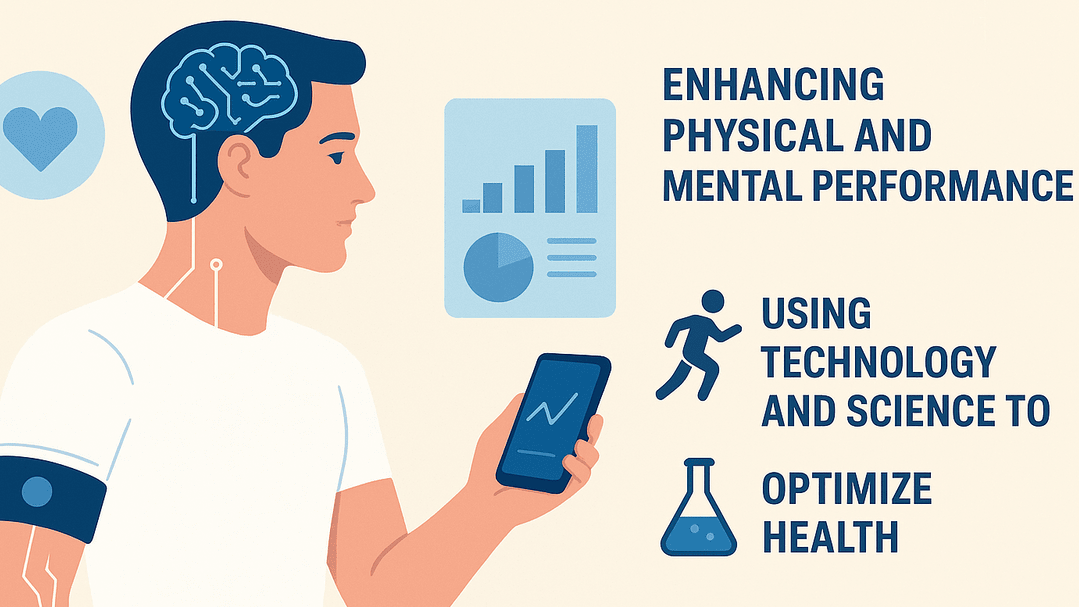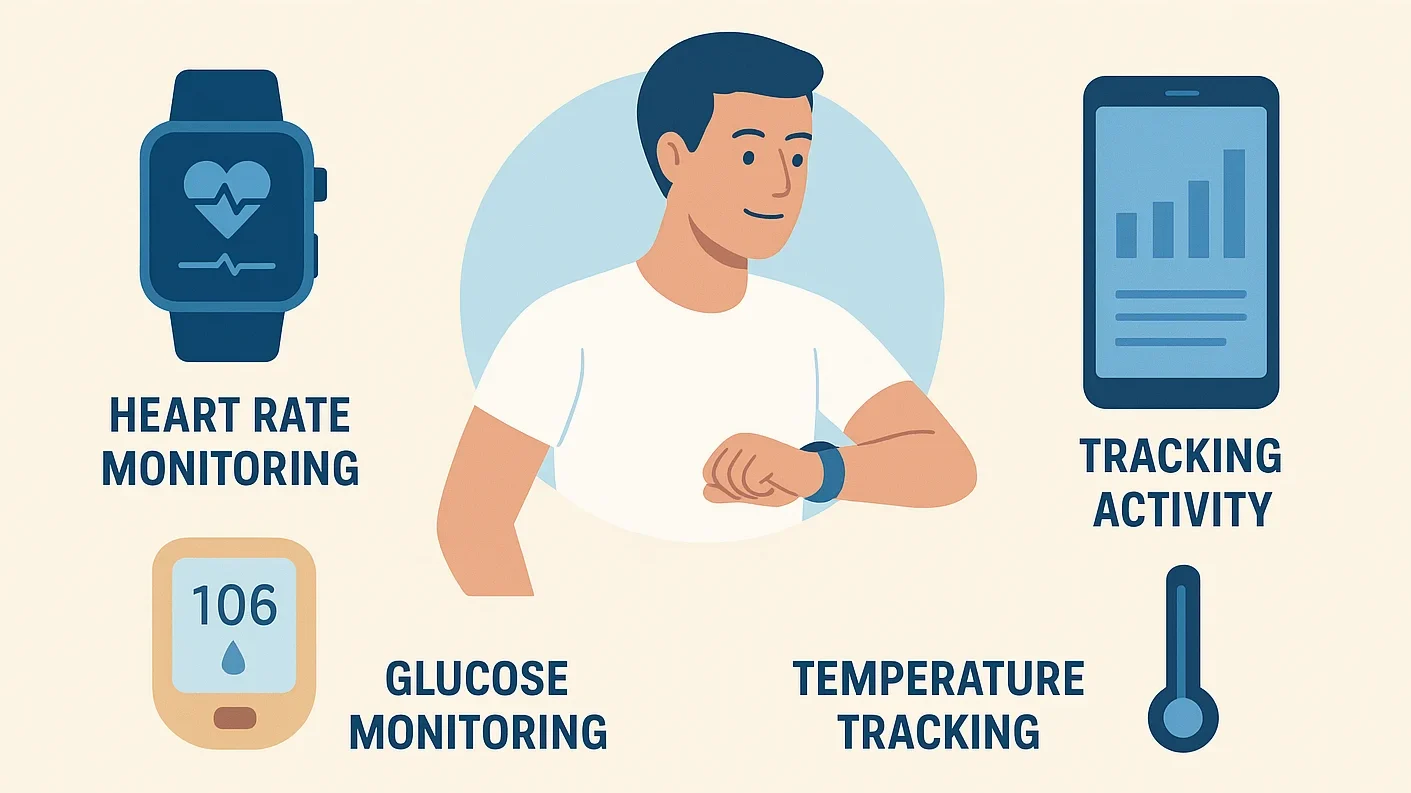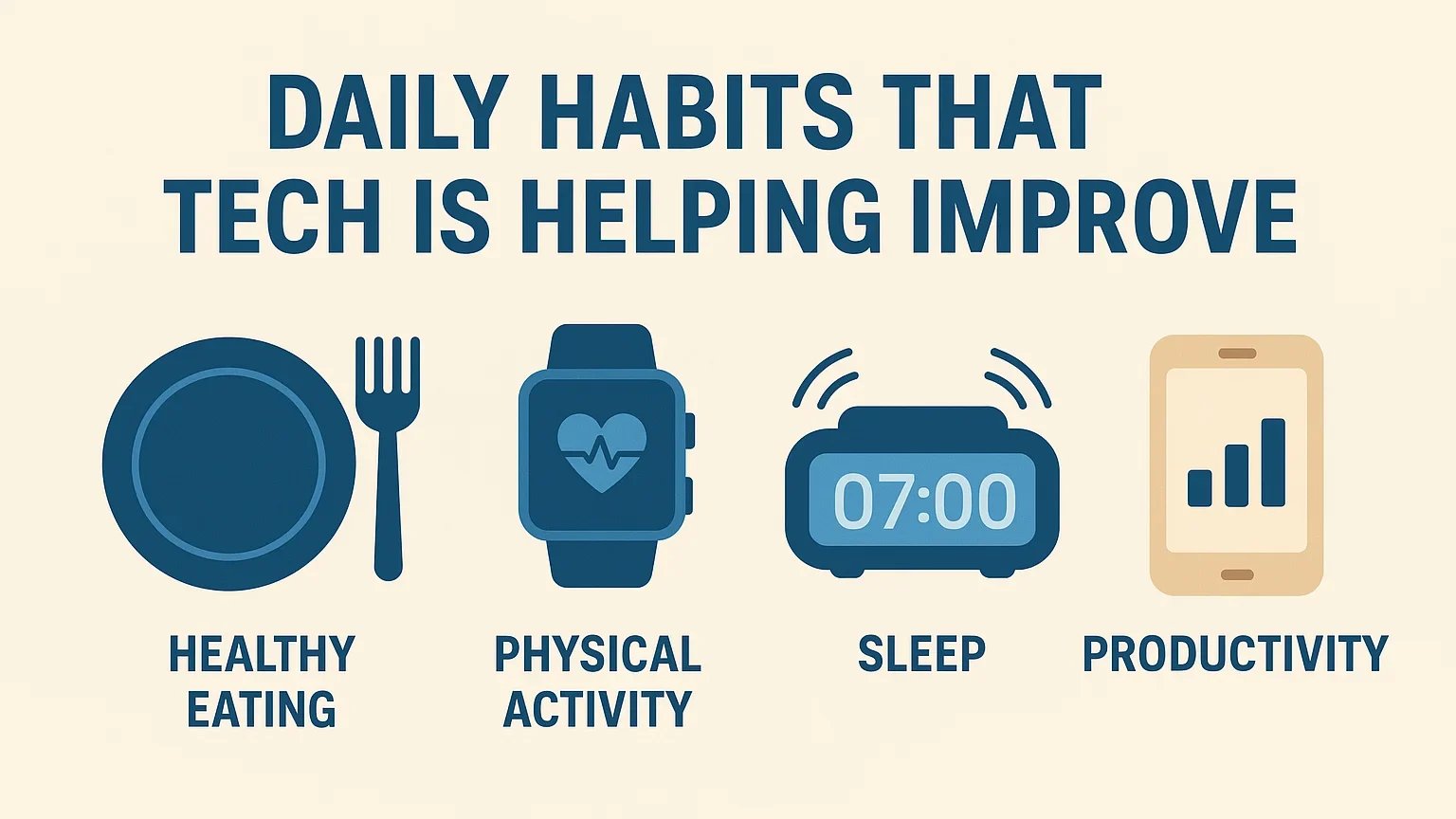Have you ever thought about how some people manage to stay active, focused, and full of energy all the time, even with busy work and life schedules? It’s not just about the gym and food anymore.
These days, many are using small tech tools and smart habits to improve their physical and mental performance. This idea is what people are now calling biohacking. It’s about using easy-to-understand data and daily improvements to feel better and do more.
Let’s talk about how smart tech is making this process smoother and more useful.
Table of contents
What is biohacking, and why are people talking about it?

Biohacking sounds like a big word, but it’s just a fancy name for using simple tricks, tools, and changes to improve health, energy, and focus. And now, with innovative tech like apps, wearables, and digital trackers, it’s easier than ever to know what’s working and what’s not.
People are not just guessing anymore; they are checking their sleep, heart rate, calories, stress levels, and more with real-time data. These small numbers help guide better decisions every day.
How smart devices are helping us understand our bodies

Many are using wearables like fitness bands or smartwatches to keep track of steps, heart rate, and sleep. Some go a bit deeper by checking their oxygen levels, HRV (heart rate variability), or even body temperature.
These numbers show how your body is responding to stress, workouts, or even what you ate last night. It’s like getting feedback without needing to go to the doctor every time.
When you know your numbers, you can make small changes. For example:
- If your sleep score is low, you might go to bed earlier.
- If your recovery isn’t good, maybe take a rest day instead of hitting the gym.
- If your stress level is high, you might try breathwork or short meditation.
These are minor adjustments, but they make a big difference over time.
Data-backed recovery is the new smart rest
Earlier, people used to rest when they felt tired. Now, recovery has become smarter. Using apps and devices, people check how well their bodies are healing after workouts or stressful days.
Things like deep sleep, hydration, heart rate, and even mood can tell you if you’re ready for more or need to slow down. This helps avoid burnout and keeps performance steady.
It also helps people manage their work and life without feeling drained. By using recovery data, one can better plan workout days, rest days, or even manage heavy office work.
Daily habits that tech is helping improve

It’s not only about fitness or recovery. Even regular habits are now being improved with the help of innovative technology.
Sleep tracking for better rest
Most people don’t even realise how much sleep affects their mood, focus, and weight. Smart tech now shows sleep quality, not just hours. People can see how much deep sleep they’re getting, how many times they woke up, and what time is best for them to sleep and wake up.
This helps in building better nighttime habits like avoiding screens before bed, keeping lights dim, or eating dinner early.
Eating better with simple tracking
Some apps now help people track what they eat, how it affects their energy, or even their digestion. Some people use glucose monitors to see how their blood sugar responds to food. Even without that, tracking meals and water intake helps people stay healthy and feel more alert.
Again, the point is, it’s not about guessing anymore. It’s about simple tracking and easy changes.
Small tools, significant changes
There are also tools for breath control, posture correction, cold exposure, and even reminders for drinking water. None of these is complicated, but when done regularly, they help people stay healthy and productive.
Biohacking is not about doing too much. It’s about doing small things every day, with the help of tech, and improving step by step.
How people use research-backed compounds with biohacking
| Compound | Purpose | Form |
|---|---|---|
| Caffeine | Energy & focus | Coffee, pills |
| Creatine | Strength & cognition | Powder, capsules |
| L-Theanine | Calm focus | Tea, supplements |
| Omega-3 | Brain & heart health | Fish oil |
| Rhodiola Rosea | Stress reduction | Capsules |
| Ashwagandha | Mood & cortisol control | Powder, capsules |
| Melatonin | Sleep aid | Tablets, gummies |
| Vitamin D | Immunity & bones | Drops, capsules |
Along with tech and habits, some people use research-based compounds to support recovery, sleep, or physical performance. These compounds are used carefully and usually for lab or study purposes.
One such name that people discuss in this area is PureRawz MK-677. Some fitness-focused individuals look into how it may support growth hormone levels or improve rest. These compounds are usually handled with care, and people check the data before using them.
Brands like PureRawz are often mentioned in discussions around lab-tested compounds and controlled studies. People who follow data-focused routines view such compounds as part of a larger system that includes sleep, food, habits, and tech-based feedback.
Again, it’s not about shortcuts. It’s about supporting the body in the right way, with smart tracking and small inputs.
The future of personal performance is already here
These days, personal performance is not just about lifting heavy weights or eating clean. It’s about combining:
- Smart sleep
- Balanced food
- Mindful habits
- Science-based tools
- Data from wearables
People who follow these routines don’t necessarily look different overnight, but over time, they feel better, think clearly, and manage their time and energy better.
How biohacking fits into everyday life
For many, biohacking is not a significant shift. It’s small steps like:
- Drinking more water because the app said you’re low
- Skipping late-night scrolling because your sleep score dropped last week
- Taking a rest day because your tracker shows high stress
- Eating more protein because you noticed energy dips mid-day
- Using a supplement after checking what your sleep or recovery is missing
And all of this works better when backed by regular tracking and small tech tools.
You don’t need to be an expert. Just using what is readily available and making daily choices based on it, that’s the simple meaning of modern biohacking.
To Sum Up
To wrap it up, biohacking with the help of innovative tech is becoming a natural part of daily life for many people. It’s not about significant changes or complicated routines, just small, smart steps backed by data. From tracking sleep and stress to making better choices with food, recovery, and movement, technology is making it easier to listen to the body and respond in the right way.
Even research-supported compounds are being explored as part of this thoughtful approach, with platforms coming up in conversations around data-driven health practices.
In the end, the goal is simple: to feel better, stay active, and perform well in everyday life. And with the right mix of awareness, habit, and innovative tools, it’s possible.










